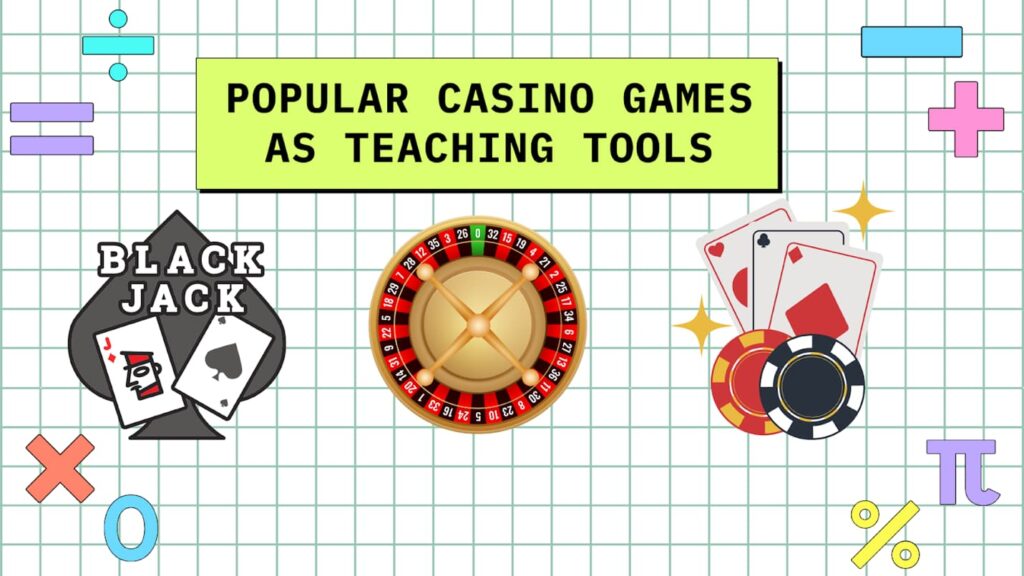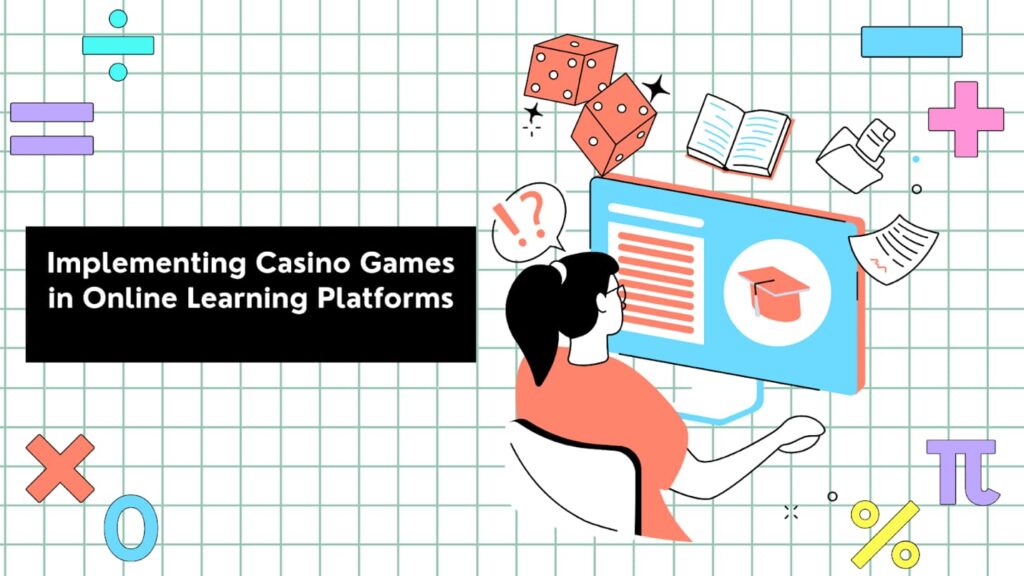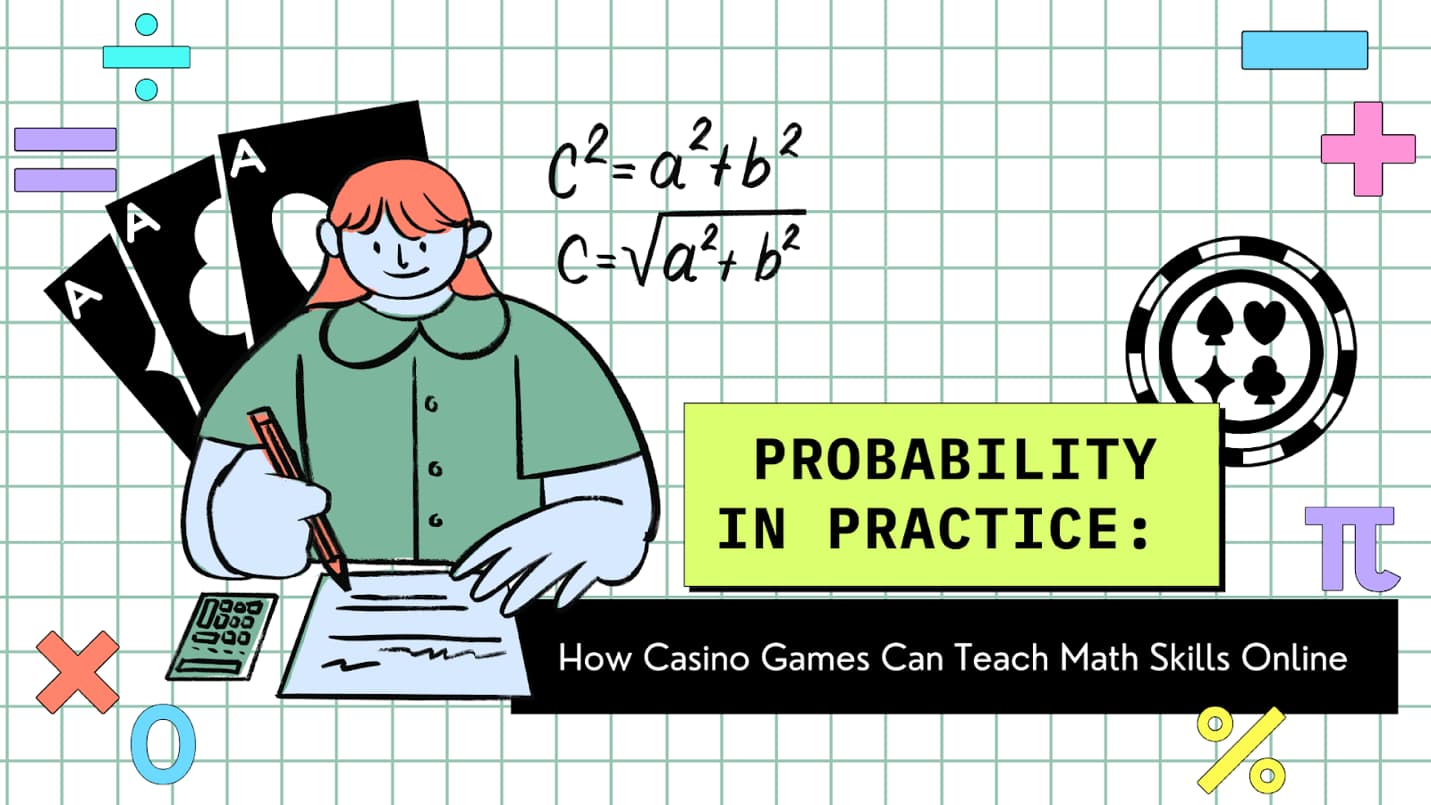One issue of mathematics education is always the same: how to bring abstract concepts to life and connect with children. Although the conventional textbooks introduce probability with coin flips and dice rolls, an even more surprising source provides more learning opportunities. When converted into learning methods in online settings, casino games can turn difficult mathematical rules into a game, a game that students will enjoy participating in.
The Mathematics Behind the Games
Casino games are based on very specific mathematical rules, and thus they are ideal to use when learning about probability and statistics. Each spin, deal and roll have calculable odds which can be analyzed and understood by the students. These games were not created to educate but when playing it is possible to see mathematical truths in action through its mechanics. These mathematical principles can be checked in an online casino like Winmasters casino, read about this and login to Win Masters casino.
Probability Fundamentals in Action
An ordinary 52 card deck is a probabilistic playground in schools. Learning at once how to operate with fractions, percentages, and ratios, students find out the odds of getting certain cards, master the task of counting, and so forth. A different problem to solve is presented with each hand dealt.
Roulette wheels are great demonstrations of independent events. The ball does not have the memory of what it has turned around on its last spins, and the students are taught that the past cannot be used to predict the future. This idea disputes the popular falsehoods concerning luck and tendencies.
Sample spaces and outcome distributions are described using dice games. Students observe the probability pattern produced by six sided dice, and they learn why some numbers are more likely to be seen as they roll multiple dice at the same time.
Expected Value and Risk Assessment
The basis of casino mathematics is expected value calculations. Students also study to multiply payouts by probabilities and find out whether the game is in their favor or it is against them. This mathematical theory goes much further than the gaming tables.
This framework is immediately obvious in the real world. There are anticipated value computations to insurance premiums and investment choices and even career choices. Students understand that they are acquiring life skills rather than learning mathematics on the computer.
Popular Casino Games as Teaching Tools

Various games are used to teach various mathematical concepts and an educator is thus able to select tools that fit his or her curriculum objectives. The types of games have different learning opportunities that attract mathematical thinking in different areas.
Blackjack and Card Counting Concepts
Blackjack presents students with conditional probability, intuitively. The likelihood of the remaining cards changes with every single card that has been drawn out of the deck. Students train to revise their calculations on the basis of new information.
The simplest strategy charts demonstrate how mathematicians have solved decision-making with the help of probability matrices. Students study these charts, and they know why it should hit on 16 and not a 10 by the dealer. The required mental arithmetic enhances the arithmetic abilities as the players keep hand values in mind as fast as possible.
Roulette and Statistical Patterns
Roulette wheel is the best case of randomness and perceived patterns. After hundreds of spins, students follow the results and find out that hot and cold numbers are only noise. Nothing better busts the fallacy of the gambler than this practical experience.
The law of large numbers is illustrated by simulations of roulette. It is seen that short-term fluctuations are leveled off over the course of thousands of spins, near theoretical probabilities. They are experiencing mathematical theory confirmed in practice.
Poker and Game Theory
Poker presents game theory, strategic thinking and probability. Students work out the odds of winning a bet, and decide whether it is worth calling a bet or not depending on their probability of winning. Such calculations involve probability, ratios and quick mental computations.
Uncertainty in reading probabilities poses a challenge to students to think critically. They should reason about the probabilities of the potential hands of their opponents and they should make some optimal decisions using incomplete information. Such skills are directly transferred to the real world uncertain decision-making.
Benefits of Online Casino-Style Math Education
Online platforms transform casino games into powerful educational tools without the ethical concerns of real gambling. Students access engaging content from anywhere, practicing skills at their own pace. However it is important to find legit and reliable platforms to login like Boo Casino online, check how BooCasino works before starting play at Boo Casino.
Engagement Through Gamification
Simulations are more interactive and engaging to students than traditional problems in textbooks. Learners actively read instead of reading passively and enhancing retention and comprehension. Competitive aspect encourages further practice.
Feedback is that which occurs right away. Students can immediately see results and know what strategies are effective and what not. This process is an iterative process that constructs intuition, as well as mathematical knowledge.
Abstractions are brought into reality through visual representations. Students can see probability distributions in action and view bell curves and variance on actual game outcomes as a result of actual game outcomes instead of theoretical graphs.
Safe Learning Environment
In educational simulations, there is no risk of any financial risk. Students feel free to experiment, propose hypotheses and make mistakes without any consequences. This security stimulates discovery and increased study.
The opportunity to make mistakes is invaluable toward creating mathematical confidence. In a positive environment, students will experiment with various strategies and learn to make mistakes. They gain strength and mathematical ability.
Practice opportunities become unlimited in digital environments. Students replay scenarios hundreds of times at reliable online casinos after checking its reviews, building the repetition necessary for mastery. Traditional classrooms can’t offer this volume of practice.
Implementing Casino Games in Online Learning Platforms

Contemporary pedagogical technology makes good use of the casino game mechanics. Platforms develop simulation games that are age friendly and are centered on mathematics rather than gambling. The tools are easily integrated into current curricula.
The different learners are accommodated by customizable difficulty levels. The students begin with easy probabilistic calculations and move on to complicated statistical computation. The software can be altered to the pace of learning.
The major characteristics of a successful educational casino game sites comprise:
- Probability computations in real time overlaid with action of the game.
- The development of skills in a progress tracking format.
- Mathematical concept challenge modes that evaluate a mathematical concept.
- Group elements of peer learning and rivalry.
- Teacher dashboards to track the progress of the students and those who are struggling.
Data analytics can assist teachers to determine the areas where the students are deficient. The software measures what concepts lead to difficulty so that special intervention can be targeted. Educators obtain the information that could not be collected during the conventional testing.
Real-World Skills Development
The mathematics of casino games can be transferred and it is applicable in their whole life. The critical thinking that is acquired in these games is applicable to all fields and professions.
Students acquire such important skills:
- Critical thinking: The ability to analyze, find information and make rational decisions.
- Data interpretation: Read statistics, comprehend distributions and make sound conclusions.
- Pattern recognition: differentiating between actual patterns and the chance occurrence.
- Financial literacy: Risk awareness, computational performance and making wise financial choices.
When the student comes to statistics with some intuitive knowledge of probability, courses are less intimidating. They have already practiced with distributions, variance and expected values. The formal mathematics puts concepts which they have internalized into form.
There are numerous professional uses in areas that need a quantitative kind of reasoning. Casino game mathematics requires the use of probabilistic thinking that becomes useful in finance, insurance, data science and research. Students acquire work-related skills as they master the standards of the curriculum.
Conclusion
There is also unanticipated educational benefit with casino games as a way to teach mathematics. The mathematical basis of their foundations offers fascinating, practical methods of teaching probability, statistics and critical thinking over the Internet. Students study by doing which develops intuitive knowledge that is hard to find using the traditional approach.
Such innovative approaches are welcome in the future of mathematics education. With the spread of online learning, the world is likely to see an increasing number of roles to which casino game mechanics can be applied in the curricula. Teachers who use such tools today provide students with benefits in learning of probability which can last a lifetime.
Casino games prove to be powerful teaching tools without removing the gambling context and instead seeing the mathematics behind the gambling. They bring abstract ideas into reality, turn practice into play, and equip students with the world where the importance of probabilistic thinking is higher than ever before.



